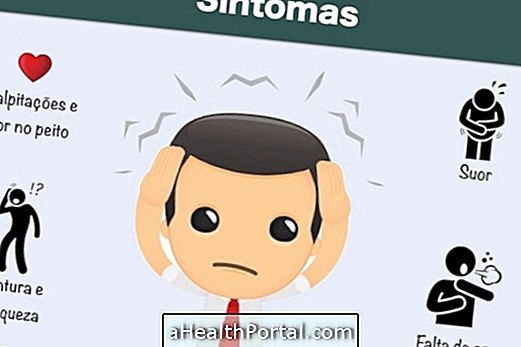Persecution craze is a psychological disorder that usually arises because of low self-esteem and self-confidence, which leads people to think that everyone is watching, commenting, or laughing at it, and can often interfere with the person's behavior and lead to isolation.
This disorder has an intensity that varies according to the person and its characteristics, being able to have a mild degree, usually being one of the signs of shyness, moderate or severe, and is usually one of the symptoms of more serious psychological problems, such as panic syndrome, depression or schizophrenia, which is characterized by changes in the functioning of the mind, leading to changes in thinking and emotions. Understand what schizophrenia is, symptoms, and how treatment is done.
The best way to deal with the persecution craze is through psychological or psychiatric counseling, in which the cause of the disorder will be investigated and measures taken to counteract this feeling causing discomfort and discomfort to the person.

Main features
People with a mania of persecution are usually isolated, not usually socializing or interacting with other people, because they fear what others feel about themselves and end up speculating what other people might think about their behavior or what they say . The main characteristics of the person with persecution craze are:
- To think that everyone observes it, makes comments or laughs at it;
- Be suspicious of everything and everyone, not being open to new relationships and not deepening old relationships;
- Low self-esteem and self-confidence, which can lead to insecurity and isolation;
- To think that she is guilty of all problems, even if unrelated to the person, which can cause frequent anguish and malaise;
- Comparison with others becomes frequent, increasing criticism of oneself.
Depending on the intensity of the persecution craze there may be uncontrollable fear, excessive production of sweating and tremors, as well as hallucinations, visual or auditory alterations, being more common in cases where the persecution craze is a consequence of schizophrenia, for example.
How to treat
In order to treat the mania of persecution, it is advisable to seek the help of a psychologist or psychiatrist in order to evaluate the characteristics that the person presents and thus to indicate the cause of the mania and to be able to start the treatment.
Treatment usually consists mainly of self-knowledge, understanding and accepting their characteristics, actions that increase their confidence and self-esteem, such as practicing physical activities, seeking environments that bring a sense of peace and tranquility, and value relationships they bring feeling of well-being.
In addition, it is important to stay open to new and old relationships, narrowing the bonds, and view the comments, good or bad, as constructive and that can help build more confidence about yourself, as well as being fearful of opinion of others. Here are a few things that help increase self-esteem.























